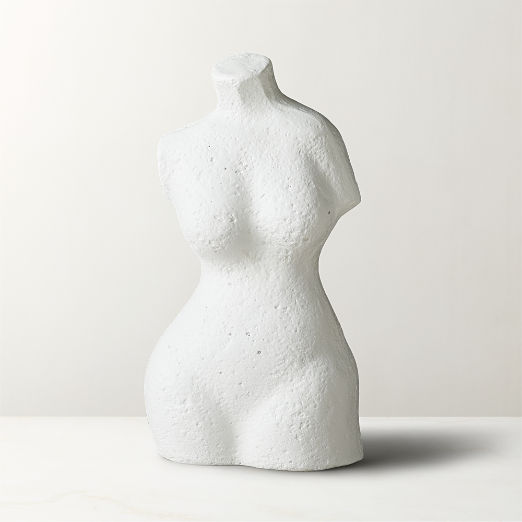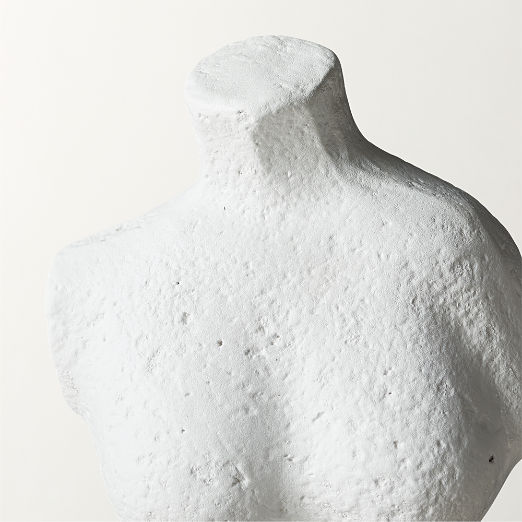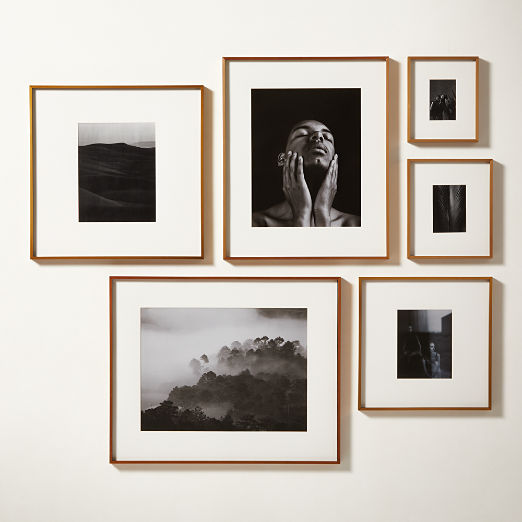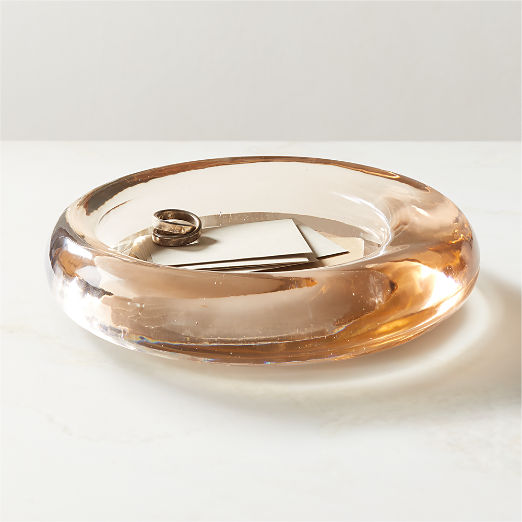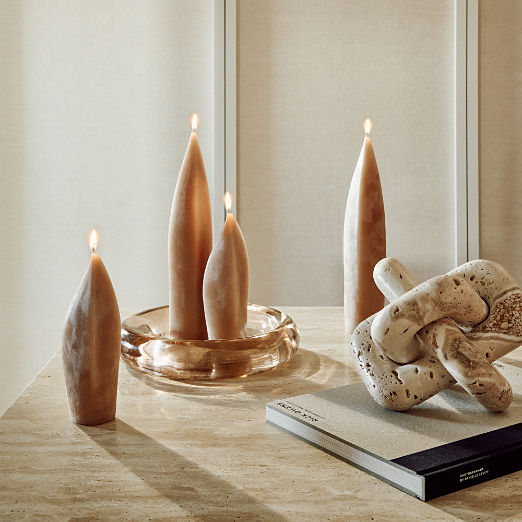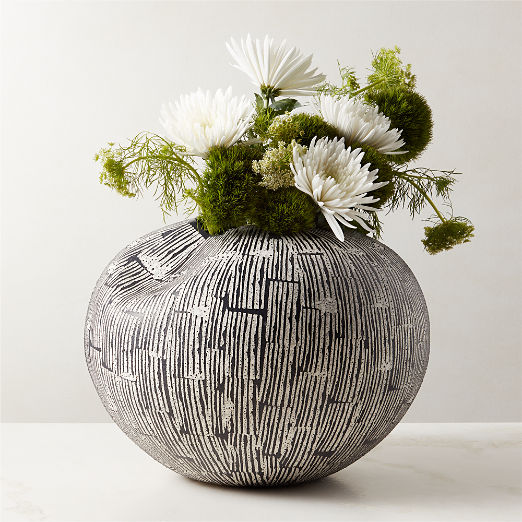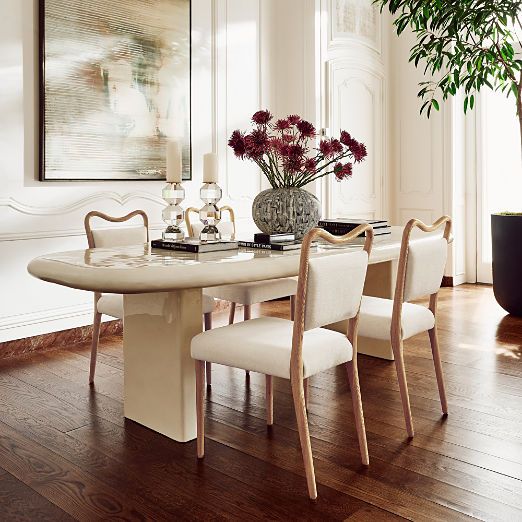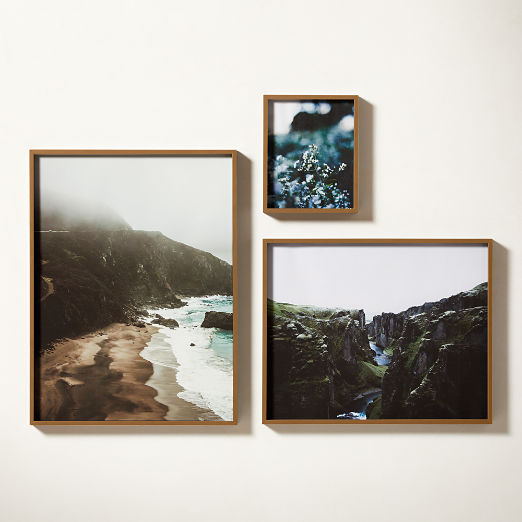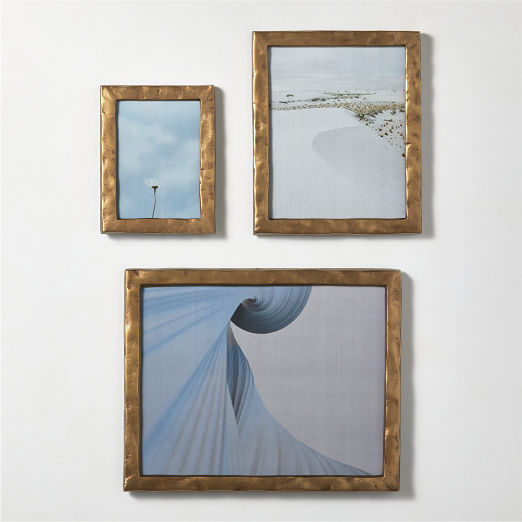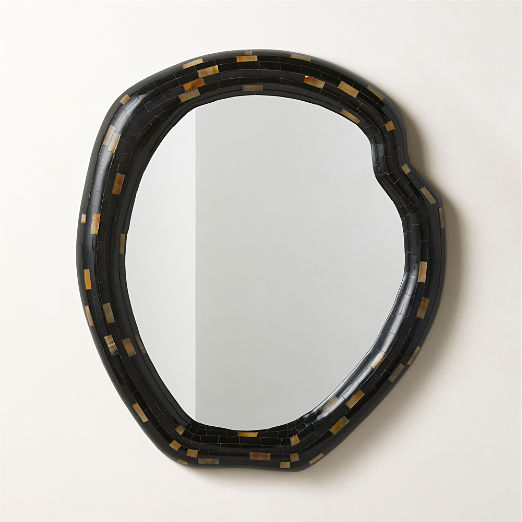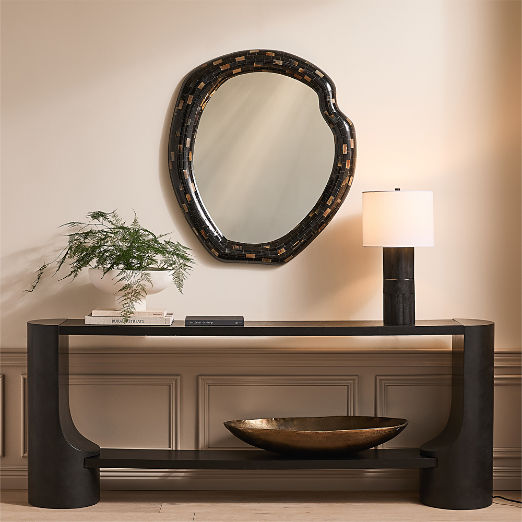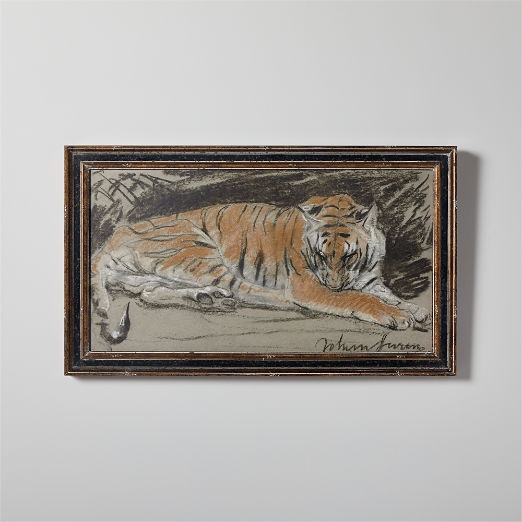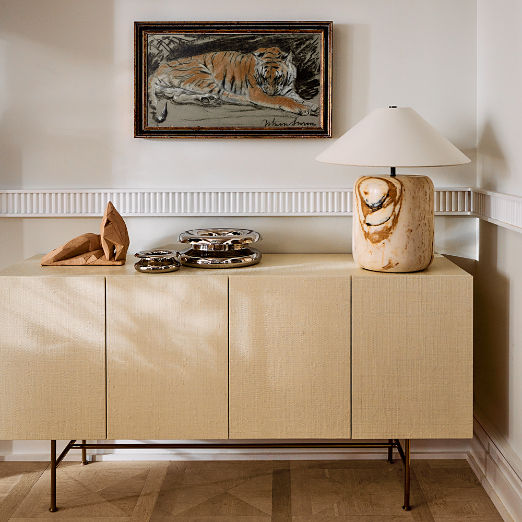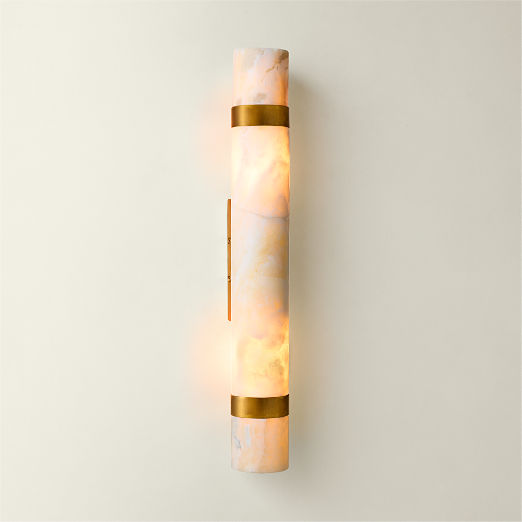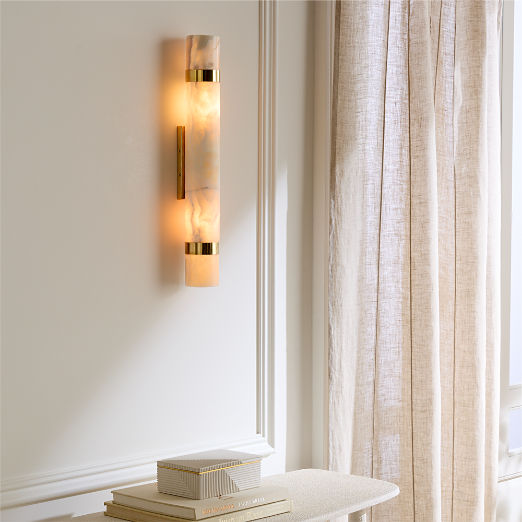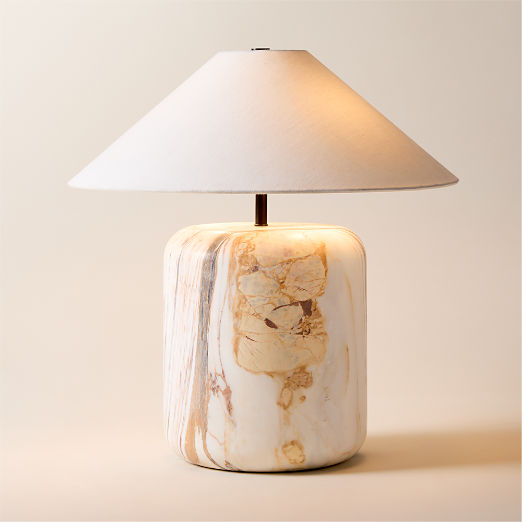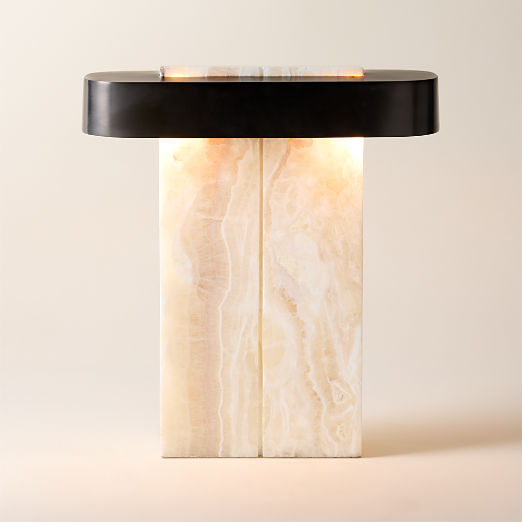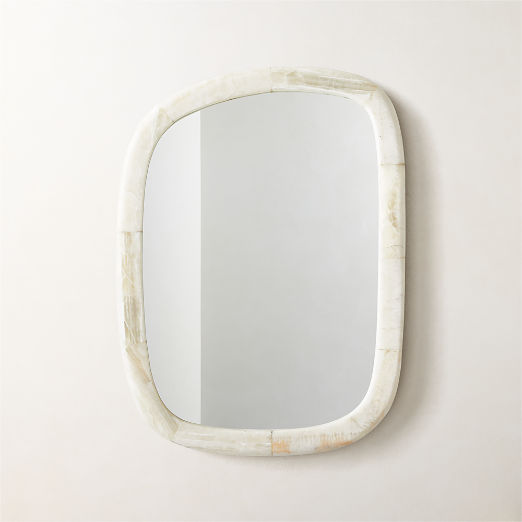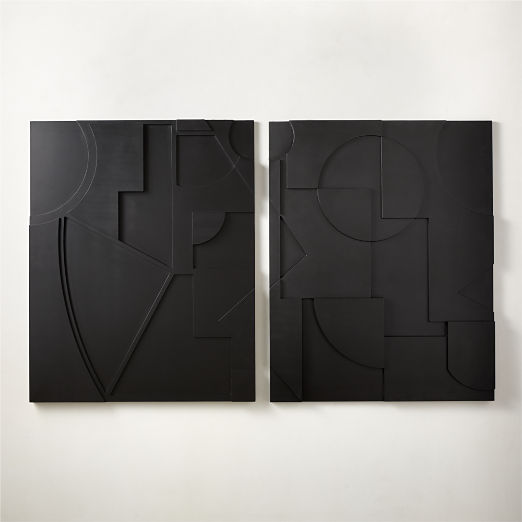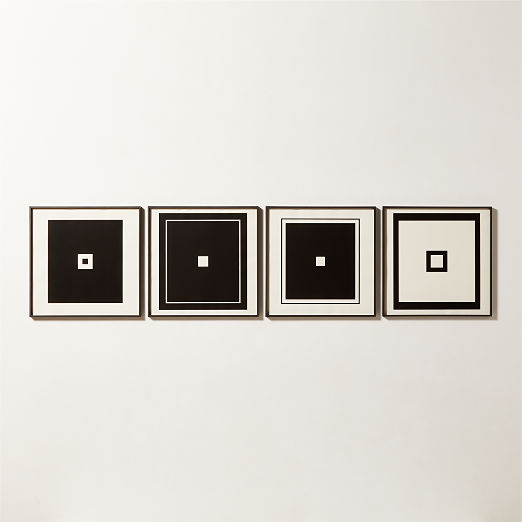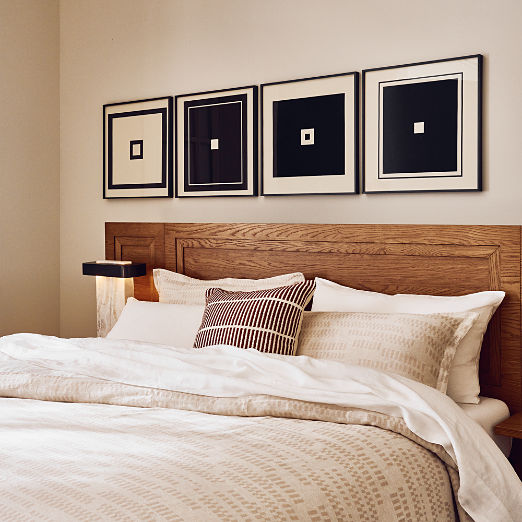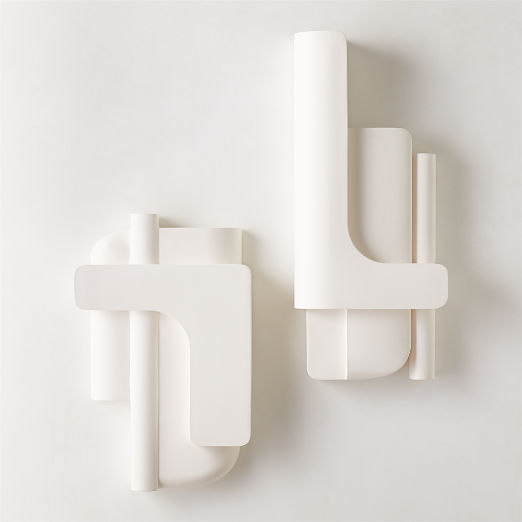A DESIGNER’S GUIDE TO GALLERY WALL IDEAS
Modern gallery wall inspiration throughout your house

Modern Gallery Wall Ideas
Not only does a well-laid gallery wall display all of our favorite artwork, photography and illustrations in one place, but it can add endless visual interest to any space.
A glance back through history reveals we’ve had an affinity for this design trend for centuries. Its origins trace back to as early as the 1600s when the French created ‘salon walls’ which displayed a myriad of different sized, textured art in one space. In 1670, the first salon was held at the Palace of the Louvre. Because space was limited, artworks filled the wall from floor to ceiling in a mixture of styles and subject matter. This layout is the basis for the modern gallery wall.
Salon-style exhibits spread throughout Europe, into private homes and then into America in the mid-1800s. While our modern-day adaptations may not be as extravagant, they certainly add drama and a storied, layered look above couches, along accent walls and ascending up staircases. The photos you’d been collecting for years, the unique giclee prints and that antique oil painting you picked up during your trip to Prague all have a place to live—together, in design harmony.
But a properly designed gallery wall can be difficult to achieve. You must consider how the color palettes, subject matter and frame styles will all cohesively blend together to create the perfect display. To help, we rounded up our top designer tips on how to create a gallery wall and gallery wall ideas for different rooms in the house:
COLOR PALETTE
Aside from the actual subject matter of the gallery wall, the chosen color palette determines the entire mood behind it all.
A warm neutral palette of cream, beige and brown, paired with a wooden or brass frame will elicit an inviting, warm aesthetic while bright whites and contrasting blacks create an upscale modern vibe.
If you’re going for a more colorful look, opt for chromatic art and wall objects within the same tone and intensity to keep it all balanced, and keep other style elements like the type of frame and style of art congruent to remain cohesive.


ORGANIC GALLERY WALL LAYOUTS
To display creative works of various sizes and orientations, we love an organic, free-flowing layout. It may look as though everything is nestled together effortlessly, but this style requires thought and planning. We’re here to help.
For larger gallery walls, using a variety of sizes will draw the eye across the arrangement. If this is the look you want to create, avoid pairing identical sizes together, as this will make the overall design feel disjointed.
Mixing landscape and portrait images further elevate the final look of an organic gallery wall composition. Consider choosing pieces of complementary sizes to place on either side of your gallery to ensure a symmetrical shape.


GRID GALLERY WALL LAYOUTS
Simple yet sophisticated, a stacked grid layout brings a sense of balance to your space with clean lines and structured symmetry.
Wall art displayed in even numbers, whether a diptych or multiples of two, looks best when it’s hung in a symmetrical arrangement and part of a larger geometrical shape, such as a square or a rectangle. Use identical gallery frames for a unified look and keep the spacing between pictures narrow so that they appear part of a group rather than in isolation.
A neat grid layout is well suited for more compact spaces and can read as one larger piece of artwork. In this instance, each piece should be consistent across size and subject.


FOCAL POINTS
In the original salons, there was fierce competition for prime spots on the wall. The most coveted spot? In the main room, art hung “on the line,” meaning at eye level for optimal viewing. Apply this same theory at home with your favorite pieces getting central real estate. If you have a few key larger pieces you know you love, you can use them as your anchor. Look to this anchor piece focal point for color inspiration and allow it to set the tone for how modern or traditional the other elements should be.
Design tip: Place your focal point piece a little off center to start the proper gallery wall flow and to let your eye travel. And remember to space the larger pieces away from one another so there’s not too much heaviness in one area.
ARTWORK
There’s an art to curating the perfect gallery wall. First, you want pieces that speak to you.
Are you an antique art collector or more of a modernist? Do abstract works or realism drawings light you up? A gallery wall tells the story of the curator, so be intentional with your assortment. Choose art pieces, photography, illustrations and treasures that you want to display and see every day, inspiring you each time you pass by.
For an old-world feel, look to vintage oil paintings with moody, rich tones and notice the depth and history they instantly add to your space. On the other hand, you can incorporate abstract and modern art prints to inject fresh sophistication.
Looking for photo wall ideas? Photography and print art adds a bold creative flair, while a photo gallery wall filled with personal photos feels inviting and warm.
Get creative and resourceful by pulling in any treasure personal to you. Think family photos, love letters, postcards, concert tickets, vows—which can be framed with white mats to pop within a picture wall.
Designer Tip: While there’s always space to mix and match materials and colors within wall gallery ideas, a common theme is the best way to ensure your arrangement doesn’t look cluttered.
FRAMES
The frames you choose to display on your gallery wall are almost as important as the art itself. Each one tells a different story and with it, you can shift the entire mood of the gallery wall.
An ornate brass or wooden frame immediately evokes a romantic vintage nostalgia, while a collection of classic black and white frames offer sleek, modern appeal.
Though minimal, modern frames may seem plain, they allow the art to stand out all on its own—which is sometimes exactly what you need from a frame. Make a style statement with a matching frame scheme to serve a clean overall look, letting the focus lie more on the art itself.
For the eclectic soul, mix-and-match frames of different materials, textures and colors to add depth and contrast.


MIRRORS
Incorporate wall mirrors within your gallery wall to make a space feel larger and to make the surrounding art pieces look more dynamic. Mirrors of all sizes can expand your walls, break up clutter and boost the light in your room. Whether it’s a large mirror that takes up a significant portion of the wall or a small mirror that’s more for decoration, each can add a reflective touch. Opt for a mirror gallery wall for a unique spin on the typical gallery and to really make a room sparkle.
FLOATING SHELVES
Floating shelves using picture ledges can also be a great option and an alternative to a mounted and framed gallery wall. If you have an assortment of original artwork and family photographs that you want to display together, try a staggered arrangement displayed on a narrow picture shelf.
MIXING MEDIUMS
Mixing mediums is a great way to add interest to a gallery wall and show off your eye for detail.
Get creative and add in wall decor items like a flag or textile, or something sculptural like a ceramic piece, to create a multifaceted design that gives your gallery wall dimension and style.
A round piece, like an oval canvas, or embroidery still in its hoop, is an interesting way to give the eye a visual break from all the sharp angles of traditional rectangular gallery wall frames.

GALLERY WALL IINSPIRATION FOR EVERY ROOM
LIVING ROOM GALLERY WALL IDEAS
- Take advantage of this large canvas with a dramatic gallery wall of your choice.
- Get creative. For a modern living room look, dress your space with fine artwork from a favorite current artist. More of a music lover? Style the wall beside your turntable with vinyl record art or a framed candid of an influential musician.
- Get personal and create a photo gallery wall of memories above your sofa with modern frames.
STAIRCASE GALLERY WALL IDEAS
- Let your gallery wall guide your eyes as you ascend up the stairs with a cohesive visual flow and balance with similar frame sizes, colors and subject matter.
- This is an ideal place for black and white family photos for an upscale photo gallery wall.
ENTRYWAY GALLERY WALL IDEAS
- Give a great first impression with a bright, inspiring gallery arrangement. Think white space and clean lines.
- If working with less wall space, focus on a mix of small and medium-sized framed pieces to get that classic gallery wall look, or go with a few large pieces for a minimal but impactful version.
HALLWAY GALLERY WALL IDEAS
- In lieu of a boring, empty narrow hallway, add interest and depth with a gallery wall.
- Since small spaces can easily feel cluttered, opt for a uniform grid layout.
- Gallery wall mirrors could be a great addition to expand the look of the hallway and to spread light.
BEDROOM GALLERY WALL IDEAS
- Fill this space with soothing works of art and a muted or monochromatic color palette with cool undertones to create a calm ambiance.
- This personal space should be just that. Make this space your own with unique works like framed love notes, postcards, etc.
HOW TO CREATE YOUR GALLERY WALL
CHOOSE A SUBJECT: Pick your art, photos, illustrations, or whatever you’d like to display. When thinking of ideas for gallery walls, remember you can mix and match but keep consistency in mind for balance and cohesion.
LAY IT OUT: Figure out the layout that suits you. This step is crucial—not only to give you a preview of how it will look, but so you know exactly how many pieces to arrange, and in what size.
Trace the outside of their frames onto paper, cut them out, and move them around on the wall with painters’ tape. This really allows you to see the symmetry, measure out spacing, and get it completely right with no fear of wall damage. You can then hang your gallery pieces directly over the paper and then just tug the paper right out.
SIZE IT UP: Keep the spacing between each picture consistent. Doing so will tie even the most eclectic collection together and make the gallery wall much cleaner and less cramped. A good rule of thumb is to leave approximately six inches around each piece. If you’re hanging on an empty wall, the focal point of your artwork or arrangement should be around 57–60 inches high. However, if you are hanging artwork over a piece of furniture, you’ll likely need to adjust the height upwards and make sure to keep four to six inches of space in between the furniture and artwork.
HANG AWAY: Make sure the first piece is level and then build from there. Your gallery wall will be finished and ready for your viewing pleasure before you know it.
Frequently Asked Questions
First, start with an anchor piece at eye-level, about five feet from the ground. Remember to place this large focal point a little off center and then the next one further away to balance out the arrangement. Fill in with small and medium pieces that share common colors, shapes or themes.
Gallery walls are very much in style and remain a popular choice for wall decor with their ability to display beloved pictures and artwork while adding visual interest.
Match gallery wall frames if you’re going for an upscale uniform look. Opt for mismatched frames to add an eclectic touch.
Yes, in general we recommend gallery walls to have a theme to keep it all cohesive, especially if you’re mixing and matching frames or colors schemes.
Look to these apps to envision your ideal gallery wall and to give you photo gallery wall ideas: Wallary, Try on Wall, Artrooms, Voun, Canva, Photoshop. Still need help? Work with a CB2 design specialist for free.
